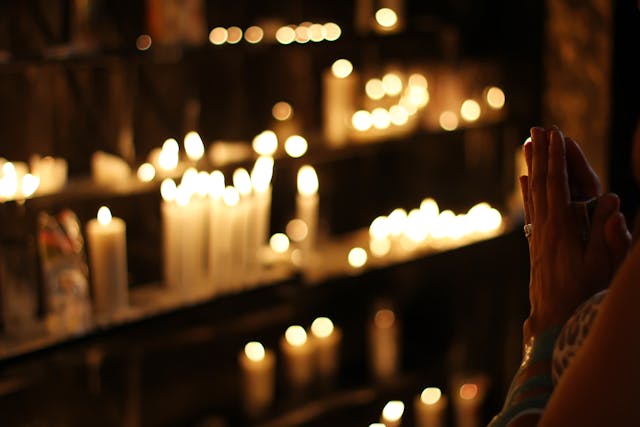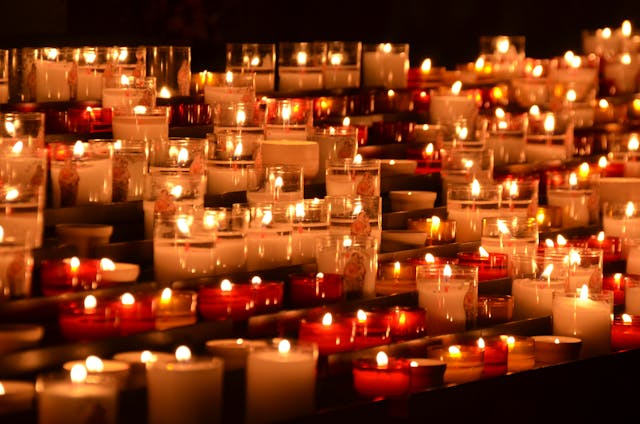Interfaith Dialogue: Building Bridges Between Religions
In a world often divided by differences, interfaith dialogue offers a pathway to mutual understanding and respect. By fostering communication between people of various religions, it promotes peace, collaboration, and a deeper appreciation of shared values. Let’s explore how interfaith dialogue builds bridges and why it’s crucial in today’s world.

What Is Interfaith Dialogue?
Defining Interfaith Dialogue
Interfaith dialogue refers to open and respectful conversations between individuals or groups of different religious traditions. The goal is not to convert others but to understand their beliefs, practices, and worldviews.
Why It Matters
In multicultural societies, religious differences can sometimes lead to misunderstandings, prejudice, or even conflict. Interfaith dialogue helps break down barriers and fosters a spirit of cooperation.
The Benefits of Interfaith Dialogue
Promoting Mutual Understanding
Through dialogue, people learn about the beliefs, traditions, and practices of others. This reduces stereotypes and misconceptions, creating a foundation of respect.
Encouraging Peace and Unity
Religious conflicts often stem from fear and ignorance. By encouraging dialogue, communities can address these issues and work together to resolve tensions peacefully.
Strengthening Shared Values
Most religions emphasize values like compassion, kindness, and justice. Interfaith discussions highlight these commonalities, showing that different faiths often share similar ethical principles.
How Interfaith Dialogue Works
Creating Safe Spaces
Successful interfaith dialogue begins with safe, welcoming spaces where participants feel comfortable sharing their thoughts and experiences. These can be community centers, places of worship, or even online forums.
Respecting Differences
Participants must approach the conversation with an open mind and a willingness to listen. Respecting others’ beliefs is essential, even when disagreements arise.
Focusing on Common Goals
Many interfaith efforts center around shared goals, such as humanitarian work, environmental protection, or social justice. Collaborative projects demonstrate how diverse groups can work together for the greater good.
Examples of Interfaith Success
Grassroots Initiatives
In local communities, interfaith groups often organize events like peace marches, cultural festivals, and educational workshops. These activities bring people together and celebrate diversity.
Global Movements
Organizations like the Parliament of the World’s Religions and the United Religions Initiative work on a global scale to promote interfaith dialogue and cooperation.
Crisis Response
Interfaith collaboration has been vital in responding to natural disasters or humanitarian crises. By working together, religious groups can provide aid and support to affected communities more effectively.
Challenges to Interfaith Dialogue
Deep-Rooted Prejudices
Long-standing biases or misconceptions can hinder open communication. Overcoming these requires patience and consistent effort.
Fear of Losing Identity
Some people worry that interfaith dialogue might dilute their own religious identity. It’s important to emphasize that dialogue strengthens understanding without compromising personal beliefs.
Political and Social Tensions
In areas of political or social unrest, religious differences can be exacerbated by external factors, making dialogue more challenging but also more necessary.

How You Can Support Interfaith Efforts
Educate Yourself
Learn about other religions through books, documentaries, or local events. Understanding different perspectives is the first step toward meaningful dialogue.
Participate in Events
Attend interfaith meetings, community discussions, or workshops in your area. These gatherings offer opportunities to connect with others and share experiences.
Encourage Open Conversations
In your personal life, engage in respectful discussions about faith with friends, colleagues, or neighbors. Small conversations can have a big impact.
Conclusion
Interfaith dialogue is a powerful tool for building bridges between religions and fostering a world rooted in understanding and peace. By focusing on shared values and respecting differences, we can create stronger, more united communities. Whether on a local or global scale, these conversations remind us of our common humanity and the importance of working together for a brighter future.












